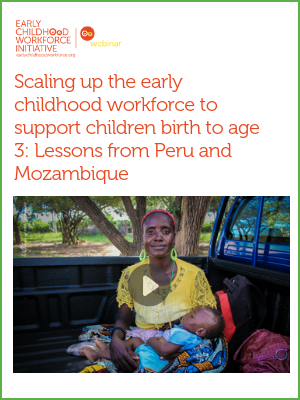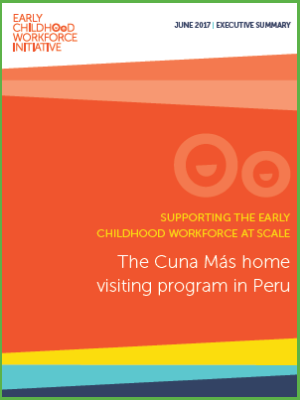WEBINAR | Scaling up the early childhood workforce to support children birth to age 3: Lessons from Peru and Mozambique

Today, there is a growing interest on the part of governments and other institutions to make large investments in the early years. However, many well-intentioned initiatives designed to support the health and development of young children struggle to move beyond the pilot or project stage. A critical factor in delivering quality services for young children is the quality of the workforce involved in delivering a service. In this Webinar, we will be discussing the challenges in scaling up the early childhood workforce by using two examples of programmes targeting children aged birth to three and their caregivers.These programs include the Cuna Mas Home Visiting programme in Peru, and a program supported by PATH in Mozambique to integrate early childhood development screening and counselling into the routine work of community health workers and clinical providers. Under the ECWI, R4D recently carried out (1) a country study on the workforce supporting Cuna Mas in Peru, and (2) a global landscape analysis of training and professional development for the broader early childhood workforce which includes a case study of PATH’s work in Mozambique.We are very fortunate to have as our Webinar panellists two of the researchers of the country study in Peru, Gabriela Guerrero (GRADE) and Kimberly Josephson (Results for Development), as well as Jordi Fernandez (PATH) and Nami Kawakyu (Kawayku Consulting) who are actively involved PATH’s maternal and child health work in Mozambique.To listen to the webinar recording, click the YouTube link below. Visit the webinar page to access all the webinar presentations.
www.youtube.com


